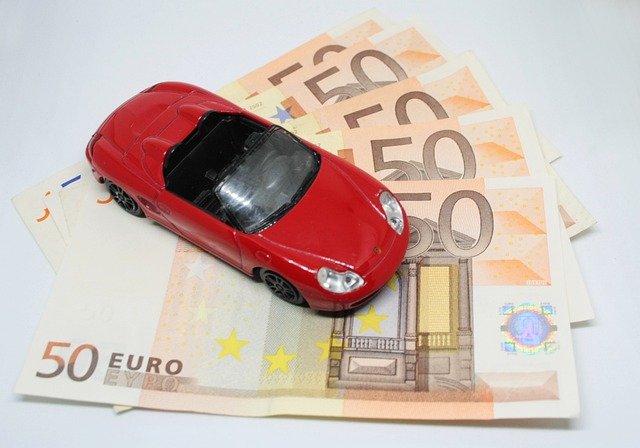Understanding Zero Down Payment Used Car Loans: A Complete Guide
Purchasing a used car without a down payment can make vehicle ownership more accessible, but it requires careful consideration of financial implications and long-term costs. This comprehensive guide explores the key aspects of zero down payment car loans for used vehicles, including financing options, associated risks, and strategies for securing favorable terms.

What Are Zero Down Payment Used Car Loans?
Zero down payment used car loans are financing agreements where lenders provide the full purchase price of a used vehicle without requiring any initial payment from the buyer. Unlike traditional auto loans that typically require 10-20% down, these arrangements allow buyers to drive off the lot immediately while spreading the entire vehicle cost across monthly payments. The loan amount covers the full purchase price, taxes, and often additional fees associated with the transaction.
These loans are particularly attractive to first-time buyers, individuals with limited savings, or those facing unexpected transportation needs. However, lenders often compensate for the increased risk by implementing stricter credit requirements or higher interest rates compared to conventional auto loans with down payments.
How Do Zero Down Car Loan Costs Compare?
The cost structure of zero down payment loans differs significantly from traditional financing options. Without a down payment, buyers finance the entire vehicle value, resulting in higher monthly payments and increased total interest paid over the loan term. Interest rates for zero down loans typically range from 4.5% to 18%, depending on credit score, loan term, and lender policies.
Monthly payments for zero down loans are generally 15-25% higher than equivalent loans with down payments. Additionally, buyers may face higher loan-to-value ratios, potentially leading to negative equity situations where the loan balance exceeds the vehicle’s current market value. This scenario becomes particularly problematic if buyers need to sell or trade the vehicle before loan completion.
What Are Common Requirements for Approval?
Lenders establish specific criteria for zero down payment loan approval to mitigate their increased risk exposure. Credit score requirements typically range from 650 to 700, though some specialized lenders may accept scores as low as 580 with additional conditions. Income verification is mandatory, with most lenders requiring proof of stable employment for at least 12 months and minimum monthly income between $2,000 and $3,000.
Debt-to-income ratios must generally remain below 40-45%, including the proposed car payment. Some lenders also require co-signers for applicants with limited credit history or borderline qualifications. Vehicle age and mileage restrictions may apply, with many lenders limiting financing to vehicles less than 7-10 years old with fewer than 100,000 miles.
How Can Buyers Minimize Risks?
Several strategies can help buyers reduce the potential drawbacks of zero down payment financing. Choosing shorter loan terms, typically 48-60 months instead of 72-84 months, minimizes total interest costs and reduces the duration of potential negative equity. Buyers should also consider gap insurance to protect against total loss scenarios where insurance payouts fall short of remaining loan balances.
Thorough vehicle inspections and obtaining detailed maintenance records help ensure the chosen vehicle provides reliable long-term value. Shopping among multiple lenders allows buyers to compare interest rates and terms, potentially saving thousands over the loan duration. Making additional principal payments when financially possible accelerates equity building and reduces total interest costs.
| Lender | Interest Rate Range | Maximum Loan Term | Credit Score Requirement |
|---|---|---|---|
| Capital One Auto Finance | 5.99% - 16.49% | 72 months | 660+ |
| Bank of America | 4.79% - 17.99% | 75 months | 650+ |
| Wells Fargo Auto Loans | 5.74% - 16.24% | 72 months | 680+ |
| Chase Auto Finance | 5.49% - 17.49% | 72 months | 670+ |
Prices, rates, or cost estimates mentioned in this article are based on the latest available information but may change over time. Independent research is advised before making financial decisions.
What Alternative Financing Options Exist?
Buyers exploring zero down payment options should also consider alternative financing methods that might better suit their circumstances. Traditional auto loans with smaller down payments, such as 5-10% of the vehicle price, often provide better interest rates while remaining manageable for many budgets. Personal loans, while typically carrying higher interest rates, offer more flexibility in vehicle selection and may not require the vehicle as collateral.
Lease-to-own programs provide another alternative, allowing buyers to make payments with the option to purchase at the end of the term. Credit union financing often features competitive rates and more flexible approval criteria compared to traditional banks. Some dealerships offer manufacturer incentives or promotional financing that may include zero down options with favorable terms for qualified buyers.
Understanding zero down payment used car loans requires careful evaluation of personal financial circumstances, creditworthiness, and long-term transportation needs. While these loans provide immediate access to vehicle ownership, buyers must weigh the higher costs and potential risks against their specific situation. Thorough research, comparison shopping, and realistic assessment of repayment capabilities ensure informed decision-making that supports both immediate transportation needs and long-term financial health.




